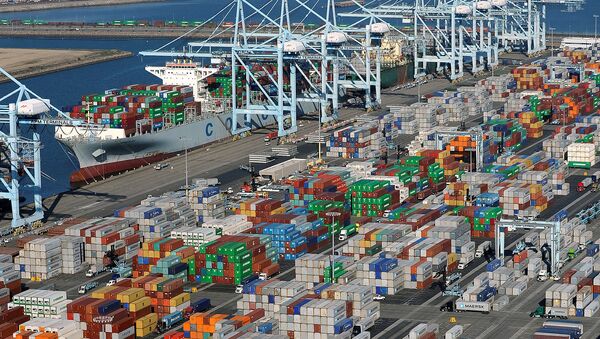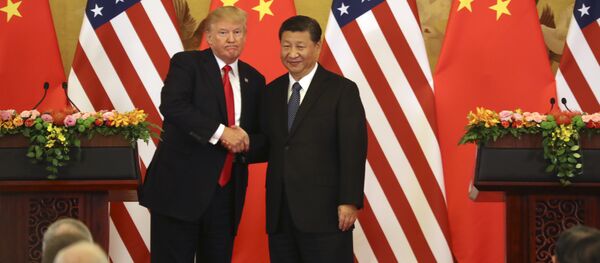Sputnik: In your view, will President Trump actually go ahead with the move?
Michael Every: It's not really a surprise. The warning of that has been floated around for some time. If you think of it in terms of a strategic struggle between the US and China over the economic future, particularly of the high tech industry, but for global hegemony if you want to think of it in broader terms, I don't really see how that's compatible with allowing Chinese companies to step into the US and just snap up the latest technologies that they haven't actually developed themselves.
Michael Every: It can't reciprocate in the same way, because no Chinese technologies are ever for sale to foreigners. There you have the nub of the problem – that China is free to buy whatever it wants in countries like the US, and nobody else is ever allowed to do the same in China. That's why we have this issue.

Sputnik: President Trump has said that the measures are aimed to counter China's initiative to become a global leader in technology. If the measures are imposed, what impact will it have on China's ambitions?
Michael Every: It will slow them down dramatically, because China has a lot of money, enormous resources, and huge talent. Nonetheless, to a very large degree, the speed at which it's been able to progress up until now has been [contingent on] standing on the shoulders of giants.
They can either steal information through industrial espionage, or just buy it through mergers and acquisitions. China can pretend to buy through M&A and then basically reverse-engineer goods while it's having a look around an industry and then walk away from that particular industry; of course, various other mechanisms along those lines allow it to basically access developments that would have taken it years and years to put in place itself.
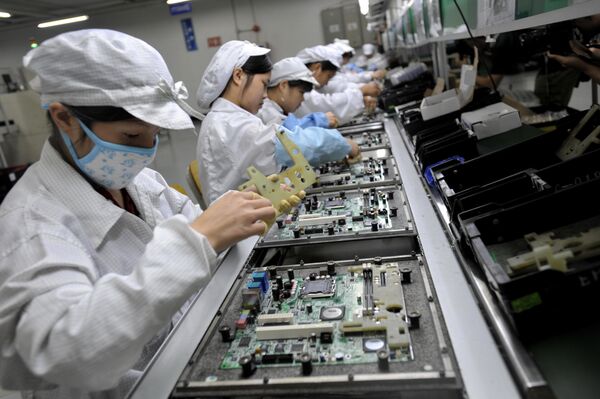
Sputnik: If tensions continue to escalate between Washington and Beijing, what other countries could benefit from China's absence on the American market?
Michael Every: It depends. If you want to think about European companies, or Japanese companies, or Russian companies for that matter – any company with high technology offering up an alternative, China will be very glad to take it. But in the case of each of those national entities and each of those companies, they will have to ask themselves the same question that the US companies are, which is: What are we selling this to China, and are we going to retain our cutting edge lead in this technology ourselves five years from now if we do? I don't necessarily see that there's going to be a long queue of other countries saying 'oh please, China, come and buy our technology instead of the US's.'
Sputnik: While the US has been pushing its hard rhetoric against Beijing, China has been attempting to deescalate tensions. What goals are both countries attempting to achieve in this matter?
From the US perspective the opposite is true. The US is the loser in this as you hear Trump say time and time again. Trump is going to use all the weapons at his disposal, which really are very significant, to try and smash the paradigm one way or another –whether it's the global trading system, whether it's the free movement of capital, the free movement of goods, whatever is necessary.
It would appear, and I stress 'appear', because we could back off on this, that at the moment, we're heading toward the US being prepared to break or smash anything in order to ensure that China can't overtake it.
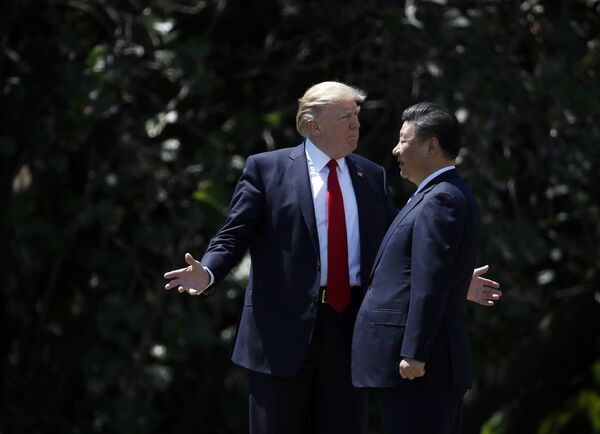
Sputnik: How close are we to a trade war?
Michael Every: I think we're in the early stages of one. 'The troops' are basically preparing their weapons; 'the generals' are laying out maps and starting to jab fingers at various different strategic points. It hasn't really started yet, because the tariffs haven't actually been imposed fully. But if we do see them escalate from here – in the [China] case, if we go from $50 billion to $250 billion or even $450 billion, then yes, we are in a trade war. And if the same thing happens in the US against Europe on car exports for example, then it's a global trade war.
Michael Every: In the short run, everyone takes a hit; everyone's economy gets weaker and the global economy suffers. If you take a longer run strategic view, which I believe Trump may be doing, countries that are large net importers like the US benefit from a trade war in the long run. If you can bring jobs and manufacturing back from China company by company, product by product, even if you make it with robots in the US, you are relying less on China, you are more independent as a national entity, and you have less of a drain on your capital outflows to a country that you see as an adversary.
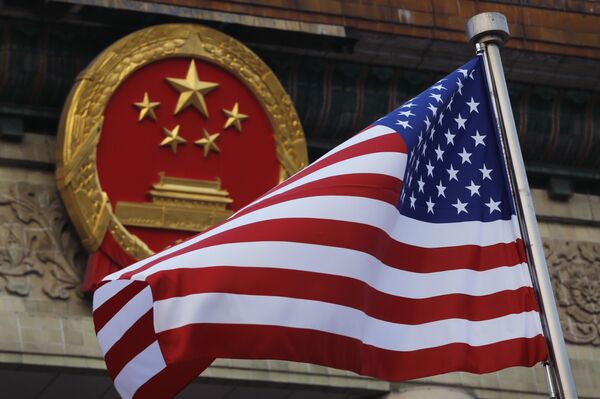
Sputnik: What options to American companies operating in China have to avoid some of the severe risks that come along with the measures pushed by Washington?
Michael Every: I think it's impossible. I mean they can lobby aggressively during the mid-term elections hoping that the Democrats win. But I seriously think that in the longer run, the political winds, from a bipartisan perspective, are blowing very strongly against US-China economic cooperation.
I would genuinely think that for many firms, now would be an intelligent time to start thinking about how you minimize your risk and start minimizing your [China] footprint, because I simply don't see a switch back to the US and China being great friends, and trying to deepen their cooperation together going forward.
Michael Every is a Hong Kong-based head of Financial Markets Research, Asia-Pacific at Rabobank, a Dutch financial services company. The views expressed by Mr Every are those of the expert and do not necessarily reflect those of Sputnik.
